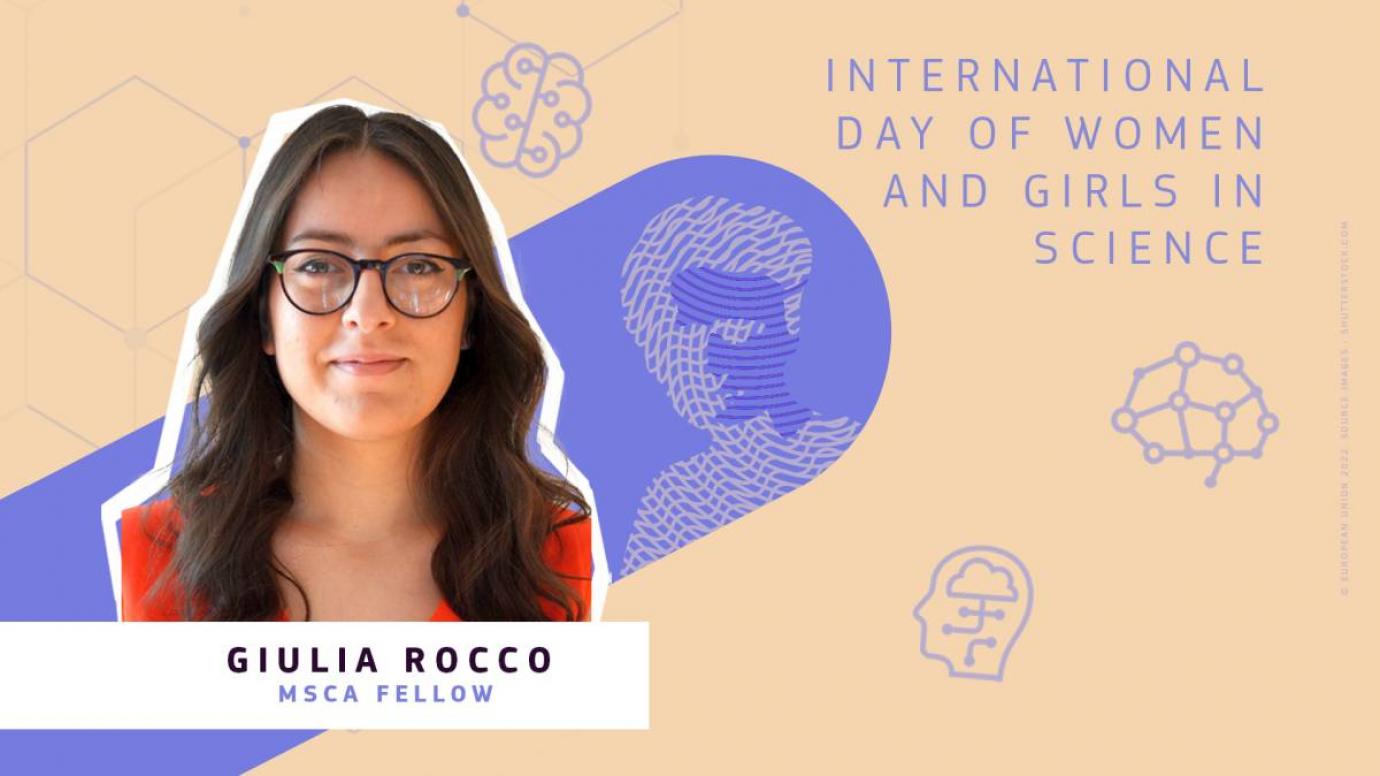Believe in yourself, you can do something to make this world a little bit better!
When Italian Giulia Rocco found she was expected to be a multi-skilled problem solver, she learned, through resilience, how to beat Murphy's Law.

Believe in yourself, you can do something to make this world a little bit better!
Italian Giulia Rocco is a MSCA PhD student within the BoostUrCAreer project at Université Côte d’Azur (Nice, France). As a biomedical engineer, her research focuses on brain signal processing for new biomedical monitoring and diagnostic systems.
Giulia landed in the world of neuroscience because she has always been eager to unravel the workings of the human brain. She is working on novel techniques to study the cerebellum, a relatively poorly-understood part of the brain dubbed “the little brain”. She was the 2021 co-winner of the MSCA Falling Walls Lab, having the chance to pitch her research among the 75 Emerging Talents worldwide at the Falling Walls Lab Grand Finale. In her free time, Giulia likes playing guitar and singing.
At what point in life did you realise that you wanted to become a researcher? What sparked your interest in your specific area of research?
I have always been very curious since I was a child, asking myself and others all the whys and wherefores. At the end of my university studies, I realised I could combine this attitude with my passion for science and turn it into a job. Also, what I like about research is, that you have to take risks. And this is exactly what brought me to my research project - there is a relative scarcity of material about the cerebellum, and clinical investigations (e.g. electrophysiological or optical) have been discouraged for a long time. But then again, what’s so funny about doing something you already know will work out?
I had to learn to be proactive, resilient, or in other words, to beat Murphy’s law
As a female researcher, what are the particular challenges you have faced in your career?
As for many researchers, I believe that the frequent job relocations represent the most dynamic and at the same time the most challenging part of this job, at least at an early stage. Besides that, I found out that we are constantly required to be highly skilled problem-solvers. Time is very precious, and anything can happen, especially with experimental work. So, I had to learn to be proactive, resilient, or, in other words, to beat Murphy’s Law.
How has the MSCA helped you advance your career?
MSCA offered me a unique package to kickstart my career as a researcher. It allows me to take part in multiple prestigious scientific events, like the Falling Walls Lab, and showcase my research. It fosters international collaborations and networking. In fact, I will be going soon to Concordia University (Montreal, Canada). Basically, it offers all the support and the resources to properly conduct research.
It is important never to under-estimate yourself and be stimulated by the surrounding environment
Data shows that in the EU women represent 48% of doctoral graduates - but only one third of researchers are women. Women remain under-represented in technical positions and at the higher levels of the academic ladder. As visionaries and innovators, how can these women unlock their full potential?
I believe that flexibility and support in the workplace are crucial to unlock full potential - we can take as an example the parental leaves. In line with this, providing more stable work positions and reducing job insecurity would make the difference. Also, mentoring and networking are two powerful tools to exploit - it is important never to under-estimate yourself and be stimulated by the surrounding environment.
If you met yourself as a youth, what would you say to encourage your younger self to become a researcher?
I would simply say, “Follow your instincts, your passions and never let anybody tell you what you have to do. Believe in yourself, you can do something to make this world a little bit better!”
Last updated:


